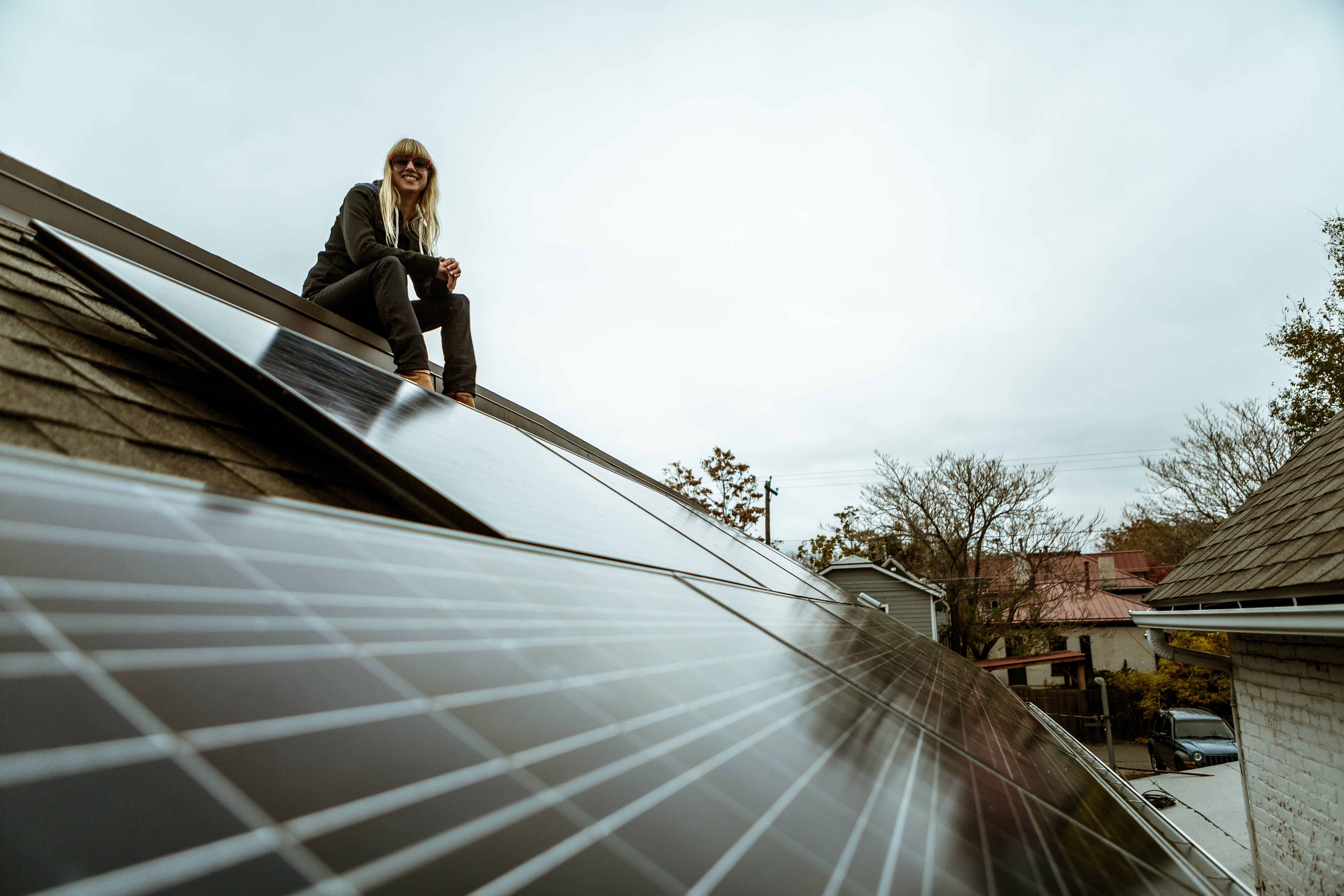Many homeowners want to install solar panels to save money on their electricity bills, but some are interested in using solar to go totally net-zero, or off-grid. This article explains the difference between the two and considerations for each. Whether you're interested in installing solar panels, battery storage or both, make Panasonic your first stop for trusted information, solutions and installers.
Solar energy is an excellent alternative to traditional sources of energy, such as coal and oil. It is a clean, renewable, and abundant source of energy that can be harnessed using solar panels. There are two main types of solar energy systems: on-grid and off-grid. Each type of solar battery and storage system has its unique features and advantages. In this article, we will discuss the difference between off-grid and on-grid solar energy.
On-Grid Solar Energy
On-grid solar energy, also known as grid-tied solar energy, is a system that is connected to the electricity grid. In this system, solar panels are installed on a rooftop or on the ground, and the electricity generated is sent directly to the grid. The homeowner or business owner can use the electricity generated by the solar panels to power their home or business.
If the solar panels generate more electricity than the homeowner or business owner needs, the excess electricity is sent back to the grid. The homeowner or business owner is credited for the excess electricity sent back to the grid, which reduces their electricity bill.
The advantages of on-grid solar energy include the ability to use electricity from the grid when the solar panels are not generating electricity, such as at night or on cloudy days. Additionally, if the solar panels generate more electricity than needed, the excess electricity can be sent back to the grid, resulting in a credit on the electricity bill.
Off-Grid Solar Energy
Off-grid solar energy, also known as standalone solar energy, is a system that is not connected to the electricity grid. In this system, solar panels are installed on a rooftop or on the ground, and the electricity generated is stored in batteries. The stored electricity can then be used to power a home or business.
The advantages of off-grid solar energy include the ability to have power in remote locations where there is no access to the electricity grid. Additionally, off-grid solar energy systems can provide power during power outages or emergencies.
Differences between On-Grid and Off-Grid Solar Energy
The main difference between on-grid and off-grid solar energy is their connection to the electricity grid. On-grid solar energy systems are connected to the grid and can use electricity from the grid when the solar panels are not generating electricity. Off-grid solar energy systems are not connected to the grid and must rely on stored electricity when the solar panels are not generating electricity.
Another difference between on-grid and off-grid solar energy is their cost. On-grid solar energy systems are generally less expensive than off-grid solar energy systems because they do not require batteries to store electricity. Off-grid solar energy systems require batteries to store electricity, which can be expensive.
The maintenance of on-grid and off-grid solar energy systems also differs. On-grid solar energy systems are typically less maintenance-intensive because they are connected to the grid and do not require batteries. Off-grid solar energy systems require regular maintenance of batteries to ensure they are functioning properly.
Conclusion
In conclusion, on-grid and off-grid solar energy systems each have their unique features and advantages. On-grid solar energy systems are connected to the grid and can use electricity from the grid when the solar panels are not generating electricity. Off-grid solar energy systems are not connected to the grid and rely on stored electricity.
On-grid solar energy systems are generally less expensive than off-grid solar energy systems and require less maintenance. Off-grid solar energy systems are ideal for remote locations and power outages, while on-grid solar energy systems are ideal for reducing electricity bills and reducing dependence
This article was written by Noor from TechBullion and was legally licensed through the Industry Dive Content Marketplace. Please direct all licensing questions to legal@industrydive.com.




